Problems both in practice and in law
Attracting investment in waste-to-energy projects is an important goal of Vietnam to simultaneously solve urgent problems in environmental protection, climate change response, sustainable development and circular economy building.
For developing countries, the need to shift public investment to the private sector will take advantage of technological resources, finance and international experience in investing, constructing and operating waste-to-energy projects.
However, attracting investment in waste-to-energy projects in Vietnam is almost ineffective because many legal barriers have not been removed, stemming from overlaps, inadequacies, and lack of detailed guidance in the legal system on bidding, environment, budget management, investment, etc.
This information was emphasized by experts at the workshop to announce the report "Vietnam Business Law Flow 2024" and the report "Assessment of Technical Standards and Regulations" on April 22 in Hanoi .
Ms. Nguyen Thi Dieu Hong - representative of the research team reporting under the Legal Department of the Vietnam Federation of Commerce and Industry (VCCI) said that according to the law, investment projects in waste-to-energy are an investment incentive sector that the State wants to encourage investment in. However, in reality, by 2023, only 15 projects have been implemented, only 4 projects have been put into power generation.
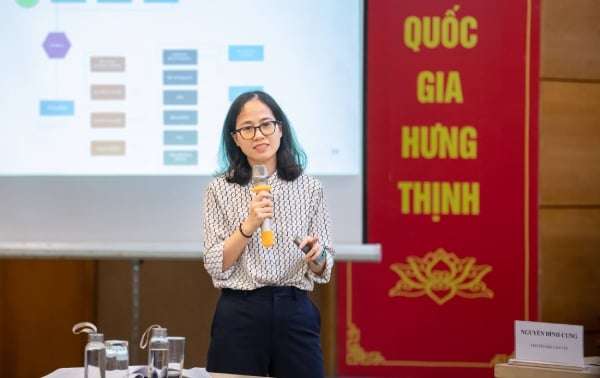
To implement the waste-to-energy project, there will be 3 methods: bidding to select investors, public-private partnership (PPP), and for existing projects, technology conversion.
According to VCCI, all three methods have problems both in practice and in law. For technology conversion projects or investor selection, investors reflect that the current legal mechanism lacks long-term commitment to investors.
According to the legal process, to implement waste-to-energy, investors must go through a process of selecting investors to implement the investment project. Then, to provide waste treatment services, investors must participate in bidding or the State will place an order for waste treatment. The State will select the service provider through the ordering or bidding method. If ordering, according to the decision, it is limited to 1 year, while bidding is up to 5 years.
"Imagine an investor investing in a waste-to-energy project that requires an extremely large amount of capital, but once they have completed their investment, the operating mechanism is very short, and there is no guarantee that after being bid for 5 years or placing an annual order, they will continue to be able to continue. Because the locality is both the supplier of input materials and the service user.
If the locality does not have a long-term commitment to the length of the investment project, it is clear that investors will not see the feasibility of the investment project. Banks also cannot see the feasibility of investing in this project to lend capital," Ms. Hong shared.
With PPP investment, the lack of detailed guidelines is the biggest difficulty. Currently, the PPP Law or Decree 35 stipulates forms of PPP investment but only has framework regulations, causing confusion for localities...
Also mentioning the difficulties and shortcomings in investing in waste-to-energy, Lawyer Nguyen Thanh Ha - Deputy Director of Vietthink Law Firm LLC said that most of the waste-to-energy projects are currently facing many deadlocks for both investors and local authorities, making project implementation very difficult and not achieving progress as expected.
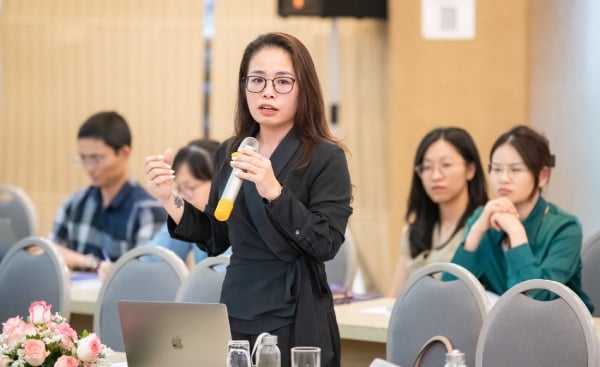
Ms. Ha pointed out that legal barriers are “holding back” investors and causing difficulties for local management agencies, including regulations on bidding for selecting investors and bidding for selecting domestic solid waste treatment facilities; lack of regulations and mechanisms for competent authorities to make commitments on the volume of input waste for domestic solid waste treatment projects; lack of regulations on financial guarantees, capital arrangement support, and revenue sharing mechanisms; and failure to ensure scientific and consistent planning related to domestic solid waste management.
Regarding the regulations on bidding for selecting investors and bidding for selecting solid waste treatment facilities, Ms. Ha said: According to the Investment Law 2020, the Bidding Law 2023 and Article 78 of the Law on Environmental Protection, solid waste treatment projects must carry out two bidding procedures: selecting investors and selecting solid waste treatment facilities. However, current regulations do not clearly distinguish between these two procedures, and do not take into account the specific characteristics of waste-to-energy projects, causing difficulties for investors and management agencies. Annual bidding puts investors at great financial risk due to the lack of commitment to stabilize input waste sources.
In particular, many localities are still concerned about having to bid to ensure competitive prices by comparing the price of solid waste treatment services using outdated technology with the price of solid waste treatment services using modern technology to ensure competition.
"We believe that these concerns are inappropriate because increasing the cost of treating solid waste with new technology is inevitable when we want to achieve the goal of gradually reducing (and eventually eliminating) solid waste treatment plants using old, outdated technology to convert to modern technology according to strategies and goals on environmental protection, combating climate change and developing a circular economy," Ms. Ha analyzed.
Need to add specific mechanisms
To remove legal barriers and improve investment efficiency of waste-to-energy projects in Vietnam, Ms. Ha proposed adding specific mechanisms and legal documents to allow the application of the form of ordering solid waste treatment services for waste-to-energy projects. It is possible to add detailed conditions on the application of the form of ordering, the time and deadline for ordering, the principles of adjusting service prices, etc. specifically applied to waste-to-energy projects.
There should be specific mechanisms and regulatory documents regulating the forms in which local management agencies can commit to providing input waste volumes for approved waste-to-energy projects in accordance with relevant regulations.
Reviewing and perfecting waste management planning at provincial, regional and inter-regional levels also needs attention.
In addition, it is necessary to soon issue detailed guidelines and model contracts for waste-to-energy projects with the orientation of calling for and selecting investors to participate in the form of PPP.
Source: https://doanhnghiepvn.vn/doanh-nghiep/dau-tu/nhung-rao-can-phap-ly-kim-chan-nha-dau-tu-vao-dien-rac/20250422052358225


![[Photo] General Secretary To Lam attends the conference to review 10 years of implementing Directive No. 05 of the Politburo and evaluate the results of implementing Regulation No. 09 of the Central Public Security Party Committee.](https://vphoto.vietnam.vn/thumb/1200x675/vietnam/resource/IMAGE/2025/5/19/2f44458c655a4403acd7929dbbfa5039)
![[Photo] Close-up of Tang Long Bridge, Thu Duc City after repairing rutting](https://vphoto.vietnam.vn/thumb/1200x675/vietnam/resource/IMAGE/2025/5/19/086736d9d11f43198f5bd8d78df9bd41)

![[Photo] President Luong Cuong presents the 40-year Party membership badge to Chief of the Office of the President Le Khanh Hai](https://vphoto.vietnam.vn/thumb/1200x675/vietnam/resource/IMAGE/2025/5/19/a22bc55dd7bf4a2ab7e3958d32282c15)

![[Photo] Panorama of the Opening Ceremony of the 43rd Nhan Dan Newspaper National Table Tennis Championship](https://vphoto.vietnam.vn/thumb/1200x675/vietnam/resource/IMAGE/2025/5/19/5e22950340b941309280448198bcf1d9)
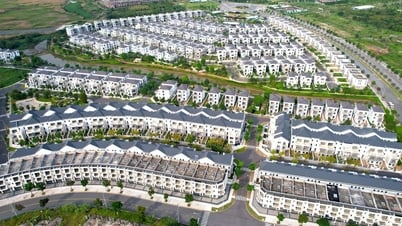





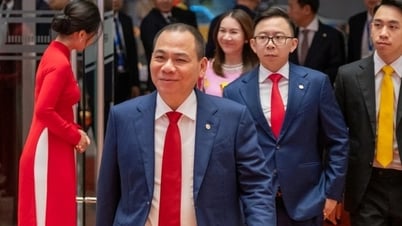
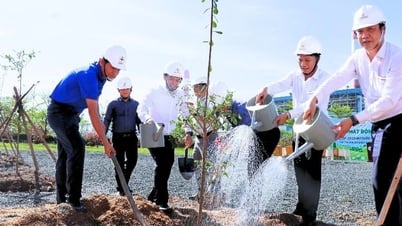






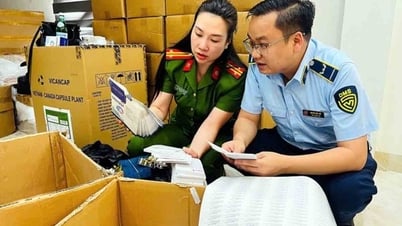

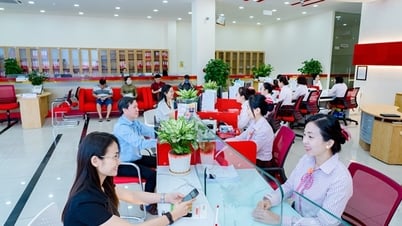



![[Photo] Prime Minister Pham Minh Chinh inspects the progress of the National Exhibition and Fair Center project](https://vphoto.vietnam.vn/thumb/1200x675/vietnam/resource/IMAGE/2025/5/19/35189ac8807140d897ad2b7d2583fbae)












































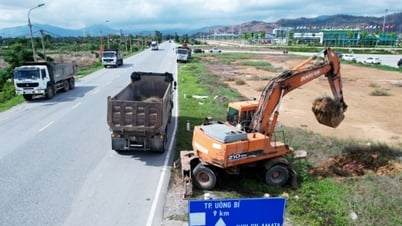

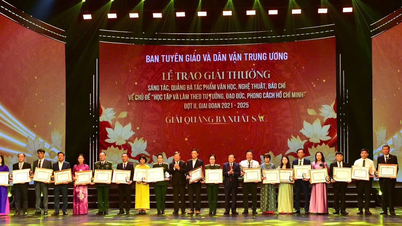







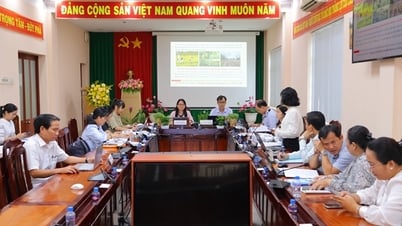




![[VIDEO] - Enhancing the value of Quang Nam OCOP products through trade connections](https://vphoto.vietnam.vn/thumb/402x226/vietnam/resource/IMAGE/2025/5/17/5be5b5fff1f14914986fad159097a677)



Comment (0)